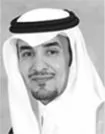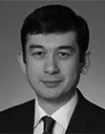Background
As a result of the new economic realities brought about by reduced global oil prices and the resultant reduction in the oil export revenues of the Kingdom of Saudi Arabia, for so long the country's economic lifeblood, there are many significant changes taking place in the Kingdom. In response to these new economic realities, "Saudi Vision 2030", a wide-ranging privatisation and economic reform program, was released in early 2016 and sets out a vision for repositioning the Kingdom's economy away from its dependence on oil export revenues and Government spending.
Certain Ministries and government entities have been allocated key roles in the implementation of Saudi Vision 2030 and as part of the implementation of the vision, the Government is undergoing a major restructure (largely through down-sizing and consolidation of Ministries) with the aim of allocating resources more efficiently and streamlining decision-making. As a result of this major restructuring, Royal Decrees issued in May 2016 renamed, merged and created various Ministries and government entities, although the roles of many of the newly formed government entities are still to be clarified.
This article sets out a brief description of some of the key Ministries and Government entities in the Kingdom.
Saudi Aramco
Saudi Arabian Oil Company ("Saudi Aramco") is one of the largest oil and gas companies in the world. Saudi Aramco was established in 1933 following the grant of an oil concession by the Government to Standard Oil Company of California. Today, Saudi Aramco is a fully integrated global petroleum and chemicals enterprise owned 100% by the Government.
Saudi Aramco is responsible for all exploration, drilling and production activities in the Kingdom. International oil companies operate through joint ventures with Saudi Aramco in Saudi oil fields and refineries. Saudi Aramco also undertakes a number of downstream oil and gas activities with joint venture partners, which include:
- Petro Rabigh - the largest integrated refining and petrochemical complex in the world. It is a joint venture between Saudi Aramco and Japan's Sumitomo Chemical.1
- Saudi Aramco Mobil Refinery Co. Ltd. - a joint venture between Saudi Aramco and Mobil Yanbu Refining Company Inc., which processes approximately 400,000 barrels of Saudi Aramco's crude oil per day.
- Saudi Aramco Total Refining and Petrochemical Co. - a joint venture between Saudi Aramco and France's Total Oil Co. for 400,000 bpd refinery with integrated petrochemical production at Jubail.
- Sadara Chemical Company ("Sadara") - a US$20 billion joint venture between Saudi Aramco and The Dow Chemical Company, which is the world's largest chemical complex ever built in a single phase, with 26 integrated world-scale manufacturing plants that produce more than three million tons of products every year.2
Private sector involvement in the construction of pipelines, storage facilities and other infrastructure for the oil and gas sector is conducted through tender processes run by Saudi Aramco. In some instances, Saudi Aramco may also seek partners for particular projects, like for the projects mentioned above. No direct foreign investment in the Kingdom's oil and gas sector is permitted without the participation of Saudi Aramco.
Saudi Aramco employs more than 65,000 workers worldwide and combined with its responsibility for all exploration, drilling and production activities in the Kingdom, Saudi Aramco has been the driving force behind the Kingdom's economy. Saudi Aramco has subsidiaries and affiliates across the globe, including in the Kingdom, China, Egypt, Japan, India, The Netherlands, Republic of Korea, Singapore, the UK and the USA.
While functionally independent from the Ministry of Energy, Industry and Mineral Resources ("MEIM"), Saudi Aramco is directly overseen by the highest levels of Government and its board comprises the Ministers of Energy, Industry & Mineral Resources, Finance and Communication and Information Technology together with the secretary of the Supreme Council of Saudi Aramco, the rector of King Fahd University of Petroleum and Minerals, three overseas representatives and Saudi Aramco's president and CEO, Amin Nasser.
Saudi Vision 2030 outlines the following plans for Saudi Aramco:
- A listing of up to 5% of Saudi Aramco's shares, with domestic and foreign investors invited to participate. The proceeds of the Saudi Aramco listing will go to the Public Investment Fund ("PIF"), a sovereign wealth fund that will also hold the Government's remaining portion of Saudi Aramco's shares. PIF is discussed further below.
- Saudi Aramco will be converted into a holding company with greater disclosure of its financial information.
- Subsidiaries of Saudi Aramco will also be listed and an autonomous board will be elected.
Website: www.saudiaramco.com/en/home.html
Ministry of Energy, Industry and Mineral Resources
The Ministry of Energy, Industry and Mineral Resources ("MEIM"), previously the Ministry of Petroleum and Mineral Resources, is charged with the supervision of the oil, gas and petrochemicals, electricity and industrial sectors in the Kingdom. MEIM is also in charge of research and development - it has three training centers dedicated to R&D and exploration of innovations and techniques relevant to the oil & gas and energy sectors.
The electricity sector was previously overseen by the Ministry of Water and Electricity, which was abolished by Royal Decree on 8 May 2016. Its functions relating to the water sector have been transferred to the Ministry of Environment, Water and Agriculture.
The industrial sector was previously overseen by the Ministry of Commerce and Investment ("MOCI"). Following the Government's restructuring initiatives, the oversight of the industrial sector was transferred to MEIM on 8 May 2016. MEIM is now also responsible for reviewing and approving industrial permit applications and related matters.
Khalid bin Abdulaziz Al-Faleh is the Minister of Energy, Industry and Mineral Resources and was previously the Minister of Health. The Minister is also the Chairman of the Board of Saudi Aramco, a position which he has held since 2015. The appointment of Mr Al-Faleh as the Minister of Energy, Industry and Mineral Resources reinforces the importance of MEIM to the future economic success of the Kingdom given that:
- in addition to petroleum and mineral resources, the responsibility for: (a) the power sector (and the control of SEC) will now rest with MEIM and the Ministry of Water and Electricity will no longer exist, which will help to bring together the various stakeholders in the power sector under the one Ministerial "roof"; and (b) the industrial sector will now rest with MEIM instead of the MOCI; and
- Mr Al-Faleh will continue in his role as chairman of Saudi Aramco and holds one of the key positions in the implementation of Saudi Vision 2030.
Website: http://www.meim.gov.sa/arabic/pages/default.aspx (Arabic Only)
Council of Economic and Development Affairs
The Council of Economic and Development Affairs ("CEDA") is a policy and decision-making body established by Royal Decree on 29 January 2015. CEDA oversees the Kingdom's domestic affairs and was established to replace several Supreme Councils abolished at the same time as part of an effort to streamline administration of the Kingdom.
CEDA is also responsible for the implementation of Saudi Vision 2030 and development of mechanisms, policies and programs necessary to achieve the goals set out in Saudi Vision 2030. CEDA has established a number of committees and offices to facilitate the implementation of Saudi Vision 2030 including a Finance Committee, Media Team, Strategic Committee, Strategic Administration Office and Project Management Office. Two specialist centers have also been established:
- the Center for Achievement and Quick Intervention was established to provide support in design and implementation of various programs and initiatives; and
- the National Center for Evaluating Performance of Public Agencies was established to strengthen transparency and accountability, monitor progress of various programs and initiatives, report on key indicators and provide regular audited reports.
The Deputy Crown Prince Mohammad bin Salman Al Saud presides over CEDA and its 22 members include heads of major ministries and some of the members of the Council of Ministers.
Ministry of Economy and Planning
The Ministry of Economy and Planning ("MEP") was established in 2003. Under the auspices of Saudi Vision 2030, MEP's role and structure was changed by CEDA with the final structure and hierarchy being approved in June 2016. MEP's role is to provide support for all executive and strategic bodies in the Kingdom, and to specifically monitor and assist 16 ministries3 to achieve the objectives of Saudi Vision 2030 through regular reporting and progress monitoring, private sector engagement, technical advice and research, development and implementation of policies, preparation of national development plans and budget estimation and allocation.
MEP has launched the "Qawam" program aimed at ensuring effective spending of budget allocations.
Within the context of Saudi Vision 2030 and MEP's objective of involving the private sector in achieving the vision, it is understood that MEP will oversee the planned privatisation of up to 146 state-owned entities, which are to include Saudi Aramco, Saudi Electricity Company, the Kingdom's major airports (King Abdulaziz International Airport in Jeddah, King Khaled International Airport in Riyadh and King Fahd International Airport in Dammam), the Kingdom's regional and internal airports and municipalities and state-owned entities in the healthcare, education, air navigation and the IT sectors.
Adel bin Muhammad Faqeih is the current Minister for Economy and Planning.
Website: http://www.mep.gov.sa/en/
Public Investment Fund
The Saudi Arabian Public Investment Fund ("PIF") was established by Royal Decree in 1971. PIF seeks to invest through equity, loans or guarantees, and through allocations of public funds to specific projects or transactions that are strategically significant to the economy of the Kingdom. PIF provides medium and long-term loans to the largescale government and private industrial projects (e.g. the Sadara project) and invests in telecoms, aerospace, energy, green technologies and security with a particular focus on housing finance, renewable energy and information technology. Examples of PIF's domestic investments include a number of Saudi banks, Tadawul, Ma'aden, STC and project companies developing I(W)PPs. In more recent times, PIF's investments have included the acquisition of a 38% stake in South Korea's Posco Engineering and Construction Company and a 5% stake in Uber for US$3.5 billion.
Following the release of Saudi Vision 2030, there has been a great deal of attention on PIF and its change of focus for the following reasons:
- The proceeds of the Saudi Aramco IPO will go to PIF and PIF will own the remainder of Saudi Aramco, making it the largest sovereign wealth fund in the world.
- PIF will have a mandate to "kick-start" domestic investment.
- PIF will become a global investment powerhouse by developing further investment vehicles.
- The efficiency of PIF's management and its return on investment will be improved, with the aim to diversify Government resources and the economy.
- PIF will not compete with the private sector, but instead, will help unlock strategic sectors requiring intensive capital inputs.
- PIF will maximise investment capabilities by participating in large international companies and emerging technologies from around the world.
- PIF will encourage major Saudi corporations to expand across borders and compete in global markets.
PIF is governed by a Board of Directors and is overseen by the CEDA.
Website: http://pif.gov.sa/indexEn.htm
Saudi Industrial Development Fund
The Saudi Industrial Development Fund ("SIDF") is a Government institution that focuses on the finance and support of the private industrial sector by providing medium and long term low cost loans to Saudi and foreign companies within the Kingdom for the purposes of setting up new factories and the expansion, upgrading and modernisation of existing factories. Many manufacturing companies in the Kingdom seek to obtain SIDF financing as the terms of such financings are viewed as more favorable than financing from commercial banks, primarily because SIDF loans have no interest rate and low management fees.
Projects financed by SIDF include:
- establishing an industrial complex for production of sulfuric acid, phosphoric acid, ammonia, and phosphate compound fertilisers in cities of Ras Al-Khair and Turaif (SAR4 billion);
- expansion of an existing industrial project in Riyadh producing calcium chloride (SAR119 million);
- establishment of a white sugar factory in Jazan (SAR840 million);
- setting up a facility for the co-generation of electricity and desalinated water in Yanbu (SAR900 million); and
- establishing a reverse osmosis sea water purification project in Jubail (SAR600 million).
In addition to the major infrastructure projects, SIDF provides industrial loans to finance small and medium size projects.
SIDF also provides IT, financial, operations, technical and marketing management consulting services.
SIDF is supervised by a Board of Directors chaired by Khalid bin Abdulaziz Al-Faleh, the Minister for Energy, Industry and Mineral Resources. Saleh Ibrahim Al-Rasheed, the Director General of MODON, and Dr Aabed A Al- Saadoun, the Deputy Minister for Companies Affairs, are the other two board members.
The Office of the Director General, presently headed by Abdulkarim Ibrahim Alnafie, oversees the administrative and executive functions of SIDF and implements decisions and directives of the Board of Directors.
Website: http://www.sidf.gov.sa/en/Pages/default.aspx
Saudi Industrial Property Authority
The Saudi Industrial Property Authority ("MODON") is a Government authority created by a Ministerial Resolution in 2001 and is responsible for the development, promotion and regulation of industrial cities and technology zones in the Kingdom. MODON is part of the initiative to encourage the private sector to become more involved in the development, operation and maintenance of such cities. MODON oversees 29 industrial cities with a total area of approximately 150 million square meters. At the moment, investments in MODON's industrial cities are estimated to exceed SAR250 billion and over 350,000 workers are employed by businesses located there. MODON also incentivises factories and plants to establish their operations within the less-popular industrial cities. Incentives include low lease rates for industrial properties.
MODON is headed by Director General, currently Saleh Ibrahim Al-Rasheed. MODON is supervised by a Board of Directors chaired by Khalid bin Abdulaziz Al-Faleh, the Minister for Energy, Industry and Mineral Resources.
Website: http://www.modon.gov.sa/en/pages/default.aspx
Ministry of Commerce and Investment
The Ministry of Commerce and Investment ("MOCI") is the government body overseeing the commercial and investment sectors in the Kingdom. MOCI's main tasks include:
- participation in setting out and implementing the commercial policies of the Kingdom;
- development and proposal of commercial laws and their implementing regulations;
- monitoring the implementation of laws and regulations applicable to the commerce and investment sectors;
- maintenance of the commercial registry;
- regulating domestic trade markets and protecting them against exploitation and monopolies, price control and developing foreign trade relations;
- licensing chambers of commerce and monitoring and supervision of their activities;
- monitoring the supply and quality of commodities entering the Kingdom;
- issuing agency registration certificates, adjudication of disputes and monitoring the implementation of the Commercial Agencies Law;
- approving and licensing Government contractors; and
- examining, processing and maintaining trade mark registrations, monitoring their usage and dealing with trade mark infringement.
MOCI is the supervising Ministry for the Kingdom's membership of the WTO, and participates in the work of regional and international organisations including the Cooperation Council for the Arab States of the Gulf. MOCI issues licenses to organise temporary exhibitions in the Kingdom and abroad and evaluates invitations for the Kingdom to participate in international exhibitions.
All companies in the Kingdom are required to be registered with MOCI. Additionally, all commercial agency contracts must be registered with MOCI. MOCI operates a number of agencies, referred to as deputy ministries, which include Consumer Protection, Engineering Management, Strategic Planning and Projects and IT Management among others. MOCI has a branch in every major city of the Kingdom.
Dr. Majid Bin Abdullah Al Qasabi is the current Minister of Commerce and Investment.
Website: http://mci.gov.sa/en/Pages/default.aspx
To continue reading this article, please click here.
Footnotes
1 Shearman & Sterling LLP has advised Rabigh Arabian Water and Electricity Company in connection with the IWSPP being developed for the Petro Rabigh project.
2 Shearman & Sterling LLP advises The Dow Chemical Company on all aspects of the Sadara project.
3 Ministries of: Justice; Energy, Industry and Mineral Resources; Finance; Health; Housing; Hajj and Umrah; Labor and Social Development; Commerce and Investment; Transport; Telecommunication and IT; Municipal and Rural Affairs; Civil Service; Culture and Information; Environment, Water and Agriculture; and Education.
The content of this article is intended to provide a general guide to the subject matter. Specialist advice should be sought about your specific circumstances.






